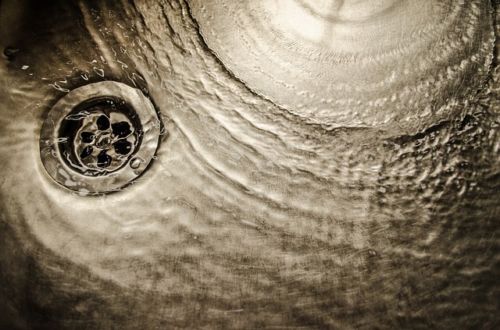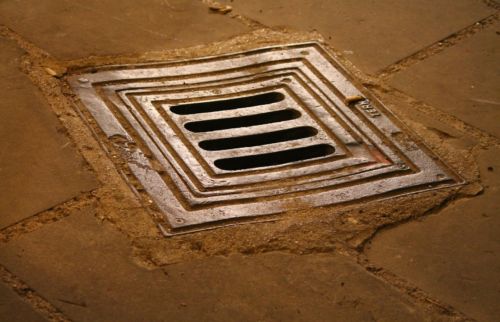Can Drain Lining Protect Your Property?
Used to repair and restore pipes, drain lining is an effective way of fixing and strengthening your drainage system. It’s not uncommon for pipes to develop cracks over time, which can increase the likelihood of leaks.
By having your drains relined, you can keep them in good condition and reduce the risk of leaks and further damage. In doing so, the lifespan your entire drainage system can be significantly increased.
When should drains be relined?
Although plastic or PVC drains are now commonly used in the construction industry, there are differing opinions on how long they should last. As PVC drainage systems have only been commonplace in the last 30-40 years, they’re a relatively new innovation.
Whilst some drainage experts maintain that PVC pipes should last indefinitely; some give an estimated lifespan of 30-40 years. Similarly, copper pipes have an estimated lifespan of 50-60 years, whilst cast iron drains can last for 75 years or more.
In reality, however, the wear and tear on drainage systems reduces the lifespan of pipes considerably. Excessively hot water or acidic flow could reduce the strength of plastic drains, for example, whilst cast iron pipes can be subject to corrosion.
Furthermore, blockages, cracking, root intrusion and stress damage can all affect the functionality and lifespan of drainage systems. When pipes are damaged in anyway, the risk of leaking increases. Even relatively minor damage increases the likelihood of a subsequent leak or drain collapse, so no drainage system is going to last forever.

With drain lining, you can repair minor issues as they arise and prevent leaks, collapses and damage. This will increase the lifespan of your drainage system, as well as preventing damage to the interior and exterior of the property in the event of a leak.
If you notice any signs of drainage issues, it’s important to seek professional advice quickly. As well as addressing the cause of the issue, experienced engineers can determine whether your drainage system can be saved with drain relining.
How do you know when drains are failing?
When there is a problem with your drainage system, you may notice the following issues:
- Slow draining water
- Standing water in sinks, toilets, showers and baths
- Bad odours from drains and plugholes
- Water running along exterior of pipes
- Leaks or damp patches on walls, ceilings or flooring
- Cracks in or around the property
- Visible blockages near plugholes
Drainage issues can occur for a variety of reasons. The most common cause of blockages and drain damage is the improper disposal of waste. If you pour oil, grease or non-biodegradable matter down your drains, for example, it is only a matter of time before a blockage occurs.
However, there are other reasons why you may experience drainage issues. These include:
- Failing drain connectors
- Reduced drain circumference due to build-up
- Leaves being swept into external drains
- Stress fractures in pipes
- Hairline cracks in drains
- Root intrusion from nearby trees
What does drain lining do?
If a drain has been damaged, it needs to be repaired effectively. If your drain is blocked and the blockage has caused the pipe to crack, for example, the blockage will need to be removed. Whilst this resolves the immediate problem, it still leaves you with a cracked pipe. Without an effective repair or replacement, the drain will leak and potentially collapse.
Drain lining is a quick and cost-effective way of repairing drains. By installing a drain liner and bonding it to the interior walls of your existing drain, any damage to the original drain becomes inconsequential.
Effectively creating a ‘drain within a drain’, lining restores your system and ensures that your pipes are functioning properly. With the integrity of your drainage system restored and protected, the risk of leaking and collapse is reduced.
How long does drain lining take?
Many property owners worry about the impact drain repairs will have. Traditionally, pipe repairs and replacements required drains to be excavated, which could be time-consuming, messy and disruptive.
With drain relining, however, state-of-the-art technology is used to provide a ‘no-dig’ drain repair. Instead of excavating pipework, experienced technicians will undertake drain relining using specialist drain CCTV surveys and equipment.
As a result, advanced drain relining can be carried out quickly and efficiently. With no need to excavate pipes or dig down to the drains, drain relining is an effective and hassle-free form of drain repair.
Is drain lining an alternative to replacing pipes?
Absolutely. Drain relining offers a permanent repair and brings your pipes back to ‘as new’ condition. By restoring the structure of your drainage system, draining relining is one of the best ways to avoid the need for pipe replacements.
However, drain relining is only a viable option whilst your pipes are still present. If a serious drain collapse occurs, for example, the damage will be too extensive. In such cases, pipe replacement may be the only suitable option.
Whilst drains are only subject to minor or moderate damage, however, drain relining remains an ideal course of action. Due to this, it’s important to contact reputable plumbers and drainage experts as soon as you notice any type of drainage issue. By acting quickly, engineers can minimise the damage and suggest minor repairs.
With the option to avoid time-consuming pipe replacement, drain relining can save you time, money and hassle. Suitable in commercial and residential environments, any drainage system can benefit from drain lining or relining.
Many property owners rely on drain relining to repair damaged pipework, but drain lining can also be a sensible way to maintain your pipes. With routine CCTV drain surveys, technicians can pinpoint any areas which are likely to succumb to damage in the near future. Lining the drains at this point, prior to cracks or damage occurring, you can prevent drainage issues altogether.
To find out more about drain lining and repairs, get in touch with FS Drainage now on 0800 689 3497.

